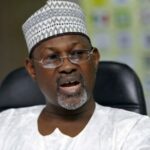Most third world countries have, with open eyes, walked into the trap set by international bodies, and it seems it is now obvious that it is Nigeria’s turn. Since the days of the Structural Adjustment Programme (SAP) in Nigeria, the hope of economic freedom has been at the mercy of international bodies. And only a wise and courageous leader will see the affliction of his people and lead them out of this economic slavery, departing from the oppressive tendencies of the past and guiding them towards true economic independence. Failure to identify and address key developmental problems is a major challenge for most of these countries. This is not just about Nigeria, but Africa at large. Africa bears the weight of a disproportionate share of global poverty, with 30 of the world’s 40 poorest countries residing on its soil. This reality reduces most African nations to mere recipients of international aid, perpetually reliant on external assistance to address their development challenges. Nigeria, the supposed Giant of Africa, is not immune to this phenomenon despite its vast natural resources and economic potential.
Nigeria’s alarming debt profile, which is rising every quarter based on the data by the Debt Management Office (DMO), threatens to suffocate the nation’s economy. A significant portion of the country’s revenue is being drained away by debt servicing, and this leaves precious little or nothing for vital public services and development projects. This debt trap is a clever tool wielded by creditors to drain the continent’s resources. As the debt situation tightens, Nigeria will be forced to surrender to the dictates of its creditors and cede control over its economic destiny. The nation’s future is being mortgaged to service debts rather than investing in its people and their prosperity. Such a trajectory must be stopped to prevent Nigeria from becoming a state permanently at the mercy of international donors. Despite the alarming debt profile and economic challenges, Nigeria continues to embark on a borrowing spree. It has become an integral part of the country’s political economy, with foreign aid becoming an indispensable crutch.
Nigeria, despite being one of the world’s largest oil producers, has struggled with domestic fuel scarcity and high pump prices. The IMF has repeatedly pushed for the removal of fuel subsidies, arguing that they are a drain on public resources and encourage inefficiency. However, the removal of these subsidies often leads to a sharp increase in fuel prices, which has a cascading effect on the economy. Higher fuel prices translate into increased transportation costs which in turn drive up the prices of goods and services, exacerbating inflation.
When President Bola Tinubu promised to widen the tax net and reduce the purchasing power of the people, he was essentially echoing the sentiments of Western economic ideologies. This approach aligns with the neoliberal agenda, which prioritises market fundamentalism and fiscal austerity over social welfare and economic equality. Austerity measures such as removing subsidies and increasing taxes extremely affect the poor and middle class. As it even stands in Nigeria, it is doubtful if the “middle class” still exists.
The IMF advocates widening the tax base and increasing tax revenues as a means of improving public finances. While this seems to be a valid strategy in developed economies with substantial formal sectors, it is a big challenge in Nigeria, where the informal sector dominates. Efforts to increase taxation often led to higher taxes on small businesses and individuals who were already struggling to make ends meet. This can stifle entrepreneurial activity and discourage investments, further hindering economic growth.
Nigeria must break free from these neo-liberal policies. The country must redirect its steps in making economic policies that will transform to better living for the people. This should from redirecting the economic orientation that is obviously failing. Let Nigerians breathe!
Matthew Alugbin teaches at the Edo State University, Uzairue.
 Join Daily Trust WhatsApp Community For Quick Access To News and Happenings Around You.
Join Daily Trust WhatsApp Community For Quick Access To News and Happenings Around You.


